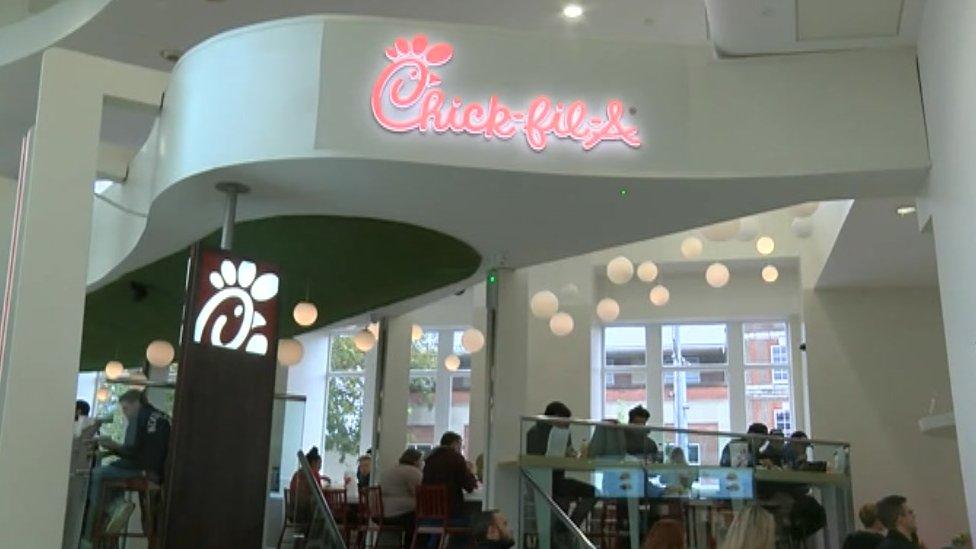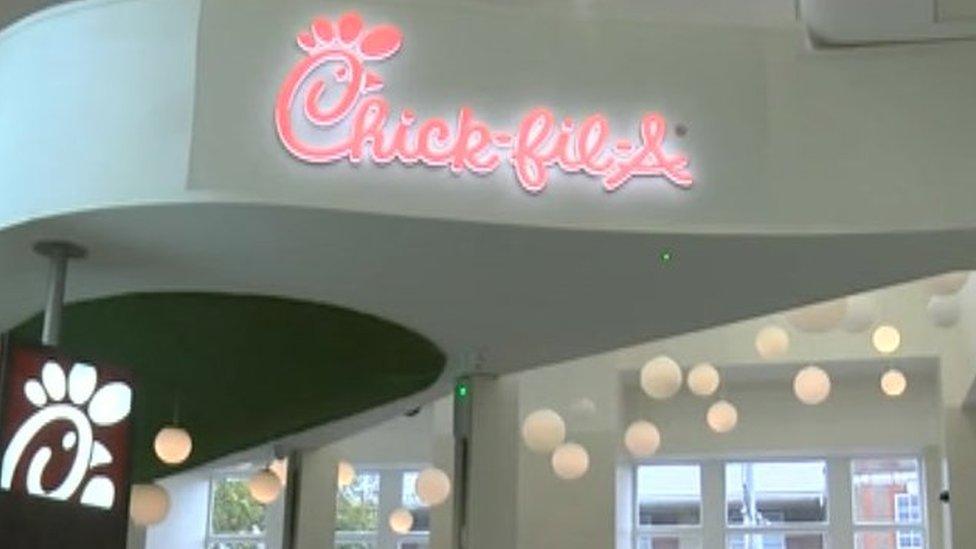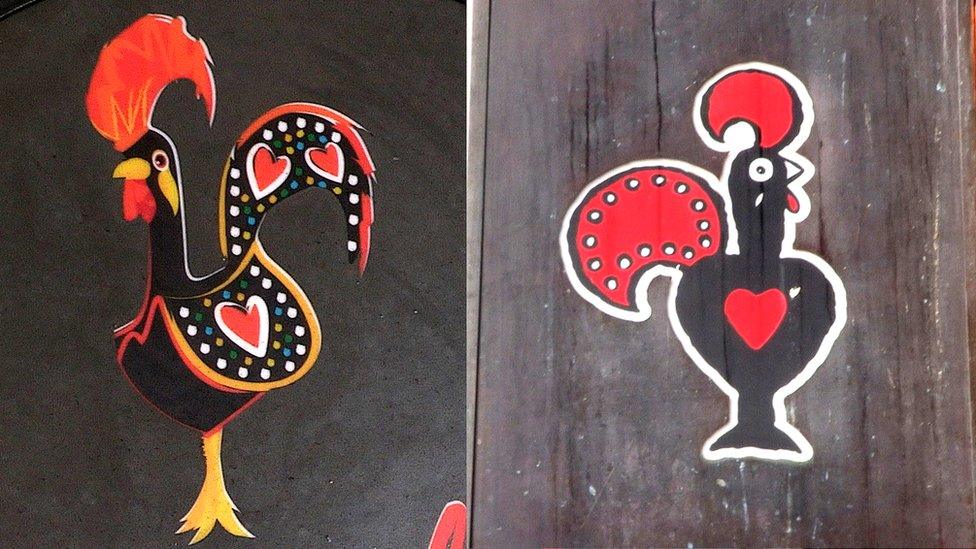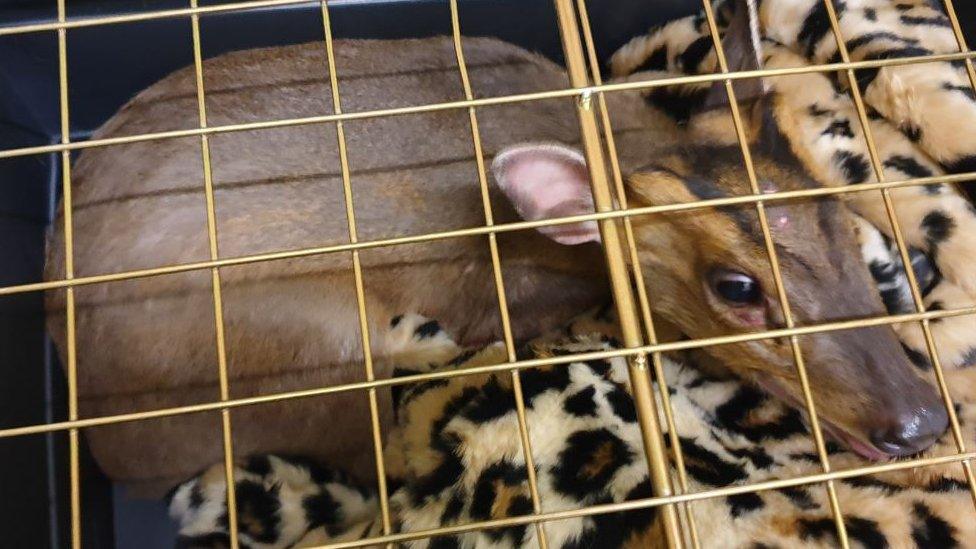Reading Chick-fil-A outlet to close in LGBT rights row
- Published

The restaurant in Reading's Oracle shopping centre opened on 10 October
A US fast-food chain will cease trading at its first UK outlet amid a row over donations to anti-LGBT groups.
Gay rights campaigners called for a boycott of Chick-fil-A, which opened its first branch at The Oracle shopping centre in Reading on 10 October.
A spokeswoman for the centre said "the right thing to do" was to not extend the restaurant's lease beyond the "six-month pilot period".
Chick-fil-A said its donations were purely focused on youth and education.
The family-owned company, founded in Atlanta in 1967, is one of the biggest fast-food chains in the USA and boasts about 2,400 outlets across North America.
According to US news website Think Progress, in 2017 the Chick-fil-A Foundation donated millions of dollars, external to the Fellowship of Christian Athletes, the Paul Anderson Youth Home and the US Salvation Army.
Campaigners from LGBT organisation, Reading Pride, said all three organisations have a reputation of being hostile to LGBT rights.
In 2012, the company's chairman sparked a US boycott when he said he opposed gay marriage.
Campaign continues
The Oracle said: "We always look to introduce new concepts for our customers, however, we have decided on this occasion that the right thing to do is to only allow Chick-Fil-A to trade with us for the initial six-month pilot period, and not to extend the lease any further."
Reading Pride said The Oracle's decision was "good news", adding the six-month period was a "reasonable request... to allow for re-settlement and notice for employees that have moved from other jobs".
But the organisation said it would continue to campaign against the outlet until it left.
Chick-fil-A had previously told the BBC: "Our giving has always focused on youth and education. We have never donated with the purpose of supporting a social or political agenda.
"There are 145,000 people - black, white; gay, straight; Christian, non-Christian - who represent Chick-fil-A."
In a statement, the UK Salvation Army said it "strongly objected to being presented as homophobic or transphobic", adding that it had LGBT+ members and served people "without discrimination".
- Published16 October 2019

- Published12 March 2018

- Published1 May 2019
